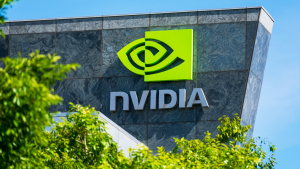Until interest rates started increasing in 2022, companies disrupting industries were very popular with investors. Think FAANG stocks and others.
Today, investors aren’t nearly as quick to jump on the bandwagon of fast-growing disruptors. That doesn’t mean you shouldn’t get exposure to companies innovating and changing their industries — It just means you have to be selective.
Who are these companies? To help me decide which three stocks to include in this article, I will lean on the AB Disruptors ETF (NYSEARCA:FWD), a newly-launched fund from AllianceBernstein (NYSE:AB).
AB Disruptors ETF was launched on March 22 and now has a tiny $8.2 million in net assets. Managed by portfolio manager Lei Qiu, the actively-managed ETF looks to hold 80-120 stocks. It looks for companies that have innovative, differentiated products and excellent management teams. FWD has 99 holdings, with its top 10 accounting for 20.36% of its portfolio.
My selections will be companies disrupting industries from three sectors and in the fund’s top 10 holdings.
NVIDIA (NVDA)

NVIDIA (NASDAQ:NVDA) is the ETF’s largest holding, weighted at 3.58%. NVDA stock is up 88.7% year-to-date.
Analysts from Bank of America Corp. (NYSE:BAC) issued a note to clients on April 19 that suggested the artificial intelligence (AI) boom could be very good for NVDA. Having already almost doubled less than four months into the year, shareholders ought to be pretty happy about their situation.
“Surging AI workloads in cloud/enterprise data centers could shift more computing horsepower/value towards specialized accelerators (such as NVDA Graphics Processing Units and custom chips from Broadcom/Marvell) and away from traditional x86-based INTC/AMD server CPUs,” Business Insider reported the comments of Vivek Arya, a senior analyst at BofA Securities.
As a result of its premise that the demand for specialized accelerators could be greater than the traditional x86 processors, BofA raised its price target for NVDA from $310 to $340, considerably higher than its current share price of $270.
Of the 47 analysts covering NVDA, 34 rated it as Overweight with a median target price of $300.
I’m a big believer in NVIDIA CEO and co-founder Jensen Huang. As long as Huang runs the show, innovation will be a big part of the company’s DNA.
Intuitive Surgical (ISRG)

Intuitive Surgical (NASDAQ:ISRG) is the ETF’s 6th-largest holding, weighted at 1.69%. ISRG stock is up 13.11% year-to-date.
I have recommended the da Vinci robotic surgical system maker twice before. I first recommended the stock in March 2013, suggesting that any slowdown in systems sales wouldn’t materialize. They didn’t. The company’s shares are up 500% since, despite a big comedown from the all-time high near $400 in December 2021.
On April 19, ISRG stock gained 13% after reporting Q1 2023 earnings that were much better than analyst expectations. In addition, because it reported its biggest growth rate since mid-2021 of 26%, it raised its outlook for procedures in 2023 to 19.5% at the midpoint of its guidance, 550 basis points higher than its previous projections.
“‘The first quarter results and commentary were very impressive, leaving us reinforced in our view Intuitive can sustain mid-teens revenue’ compounded annual growth rate, making it a standout in medtech,’ said Truist analyst, Richard Newitter. As a result, he reiterated his Buy rating and raised his target for price to $325 from $300 earlier,” Barron’s reported Newitter’s comments.
Intuitive Surgical has been disrupting the healthcare industry for years. So no one should be surprised it remains a growth leader.
Booking Holdings (BKNG)

Booking Holdings (NASDAQ:BKNG) is the ETF’s 9th-largest holding, weighted at 1.6%. BKNG stock is up 31.86% year-to-date.
“I’m fairly positive about the travel environment right now,” Barron’s reported Fogel’s February comments. “We had a very good 2022, and that momentum has carried into 2023.”
My unscientific observations confirm Fogel’s comments.
Seriously though, he’s right to call 2022 an exceptional year. Its revenue of $17.1 billion was 56% higher than a year ago, while its operating income, at $3.1 billion, was 162% higher than in 2021. Its free cash flow in 2022 was $6.19 billion, or 36.2% of its revenue, up from 23.0% in 2021. Based on a market cap of $101.3 billion, it has a free cash flow yield of 6.1%. Anything between 4% and 8% is a reasonable price.
I’d look for Booking to leverage AI further to improve the customer experience. In March, Fogel wrote on LinkedIn that Booking had used AI for over a decade. However, it is approaching generative AI with cautious optimism. For now, it will tread slowly on this front.
On the date of publication, Will Ashworth did not have (either directly or indirectly) any positions in the securities mentioned in this article. The opinions expressed in this article are those of the writer, subject to the InvestorPlace.com Publishing Guidelines.
